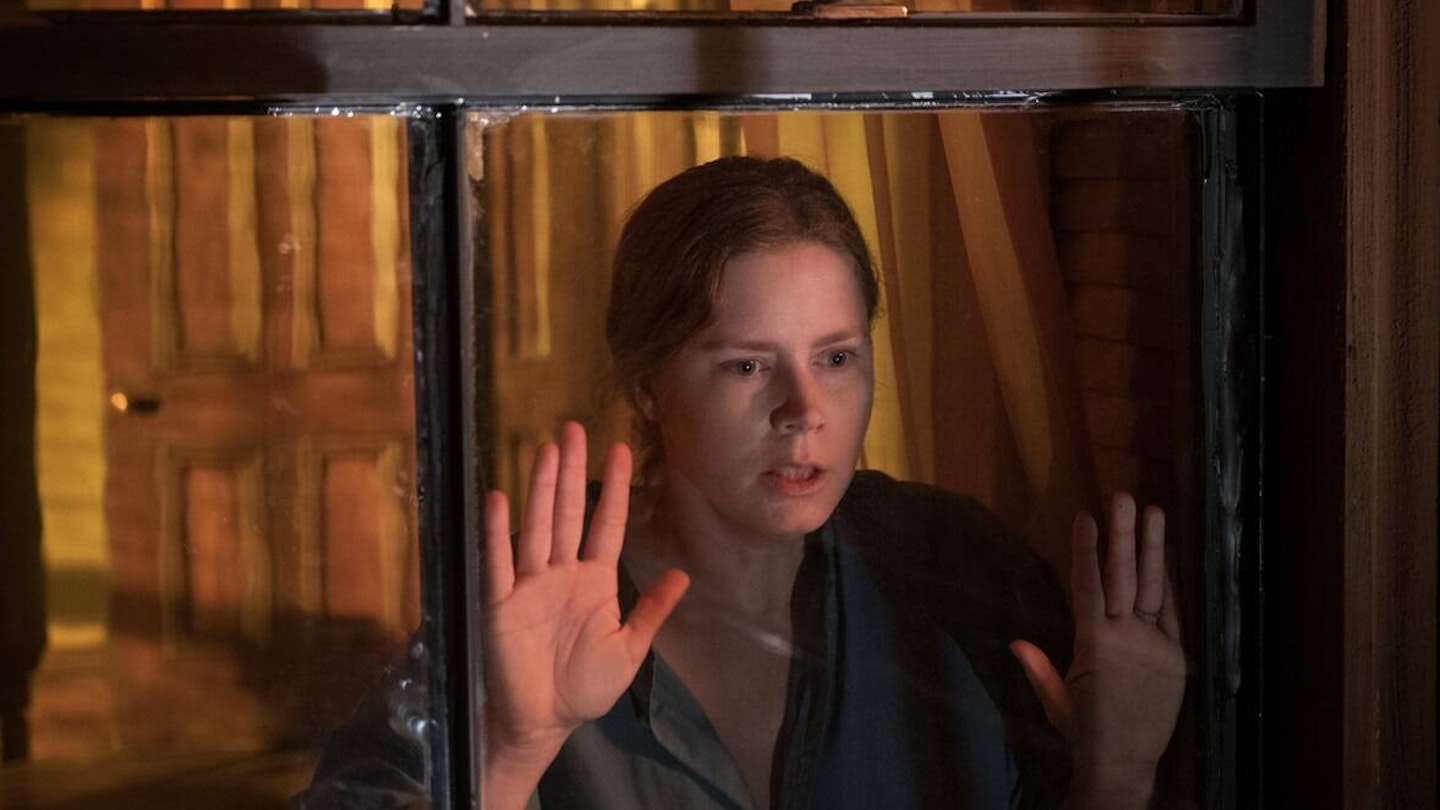The tumultuous production of Netflix’s newest thriller, The Woman In The Window, directed by Joe Wright (Atonement,__ Pride & Prejudice), is well documented. Testing terribly, with audiences left so confused that emergency reshoots were swiftly ordered, and hastily passed on by Disney after they purchased Fox, Wright’s adaptation of A.J. Finn’s bestseller seems to have been cursed from the off, destined to be a bit of a shambles. Sadly, a troubled creation is the least of its issues.
Style is no substitute for substance, which is what is really lacking here.
The set-up is promising, if very Rear Window-esque. Amy Adams stars as Dr Anna Fox. We learn early on that her husband Ed (Anthony Mackie) and daughter Olivia (Mariah Bozeman) have left her, and that Anna has dealt with that primarily through drinking and pill-popping, occasionally meeting with a psychiatrist (Tracy Letts, also the film’s screenwriter) who encourages her obsession with prying into her neighbours’ lives. Anna’s addictions — often emphasised in the grating sound mix and off-kilter camerawork — position her as an unreliable narrator. Thus, when her life becomes entangled with the deeply dysfunctional Russell family (Gary Oldman, Julianne Moore, Fred Hechinger), we can never be sure that all we see is as it seems.
Technically, the film works reasonably well. DP Bruno Delbonnel (Amélie) frequently finds just the right (usually Dutch) angle to create intrigue otherwise lacking in Letts’ screenplay. He captures Anna’s fusty apartment home in streaks of jaundiced yellow light that frame her like a fly in amber, Adams’ constrained yet buzzing central performance — almost film-savingly mesmeric — fitting perfectly. Danny Elfman contributes a score with Bernard Herrmann-like stabbing strings that try to inculcate a sense of urgency. Unfortunately, style is no substitute for substance, which is what is really lacking here. The increasingly ludicrous twists, uncharacteristically hammy performances from ordinarily dependable names like Oldman and Moore, and glacially slow pacing, all of which expose a fundamentally flawed script, stop Wright’s film from ever threatening us with a good time.
